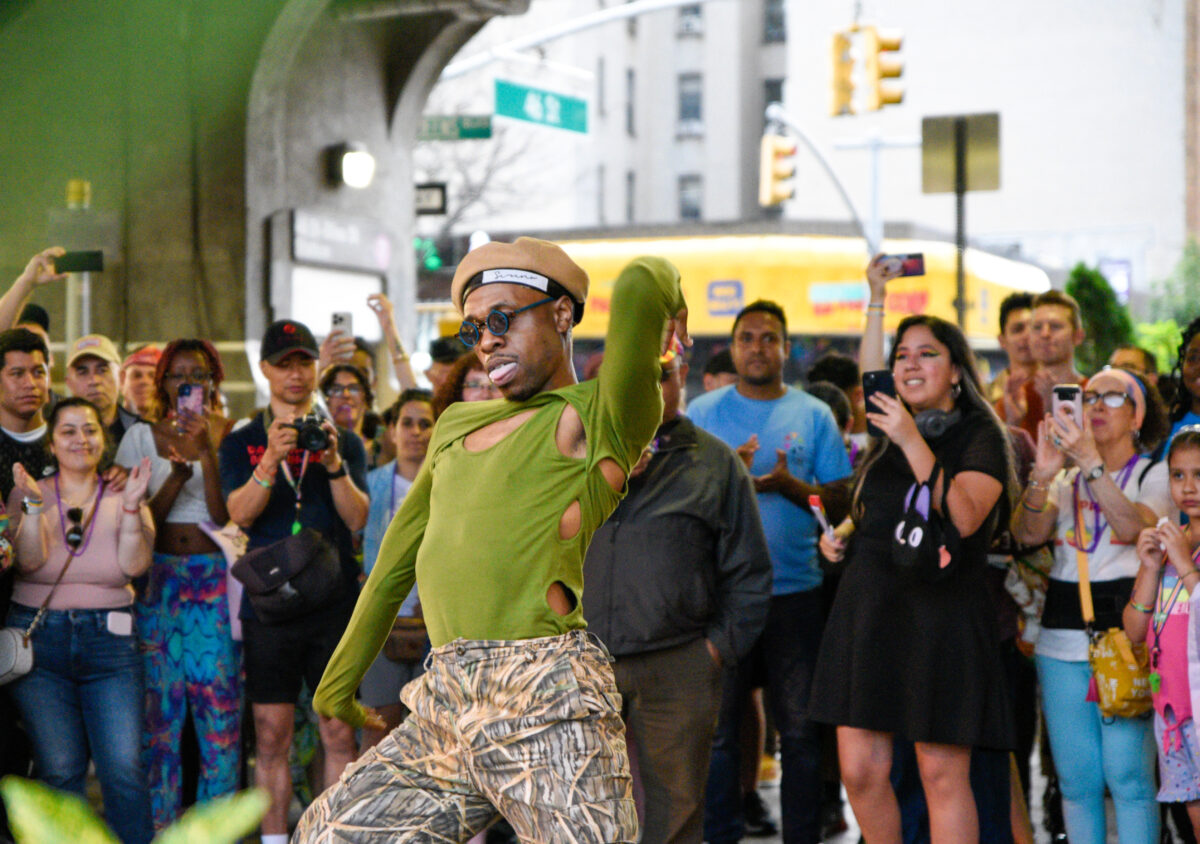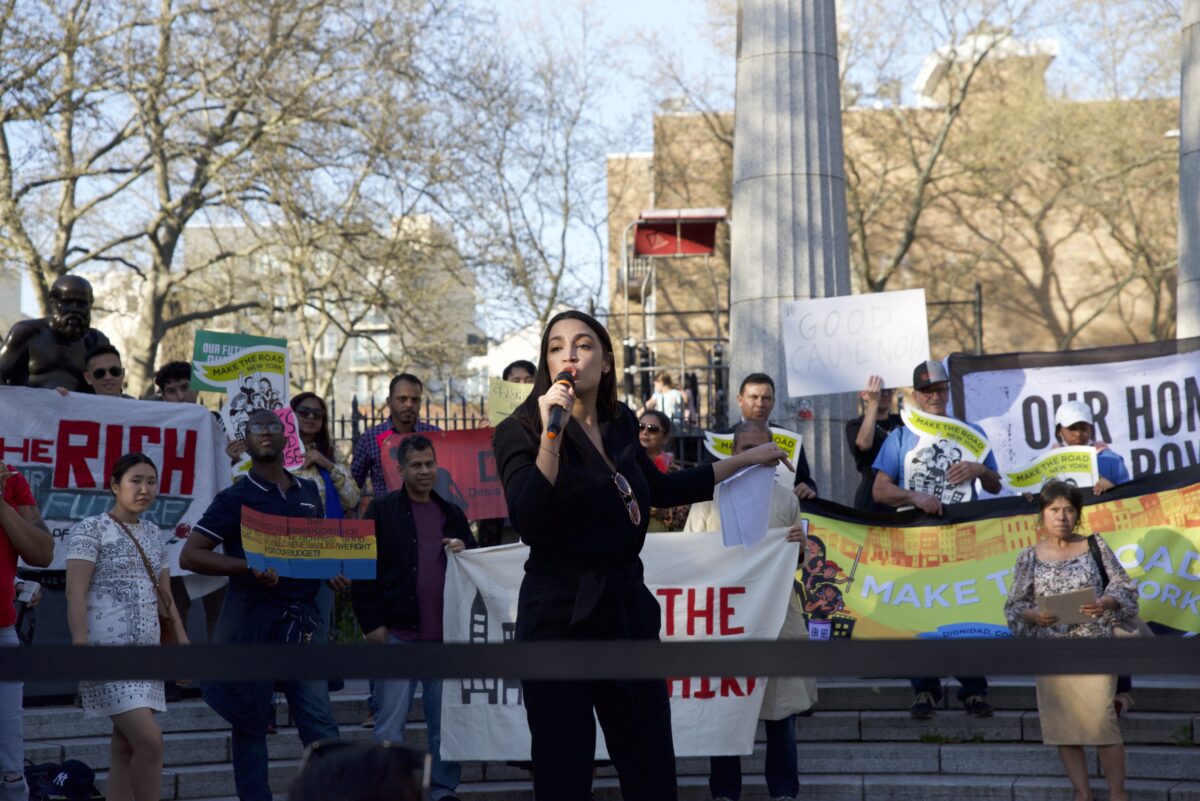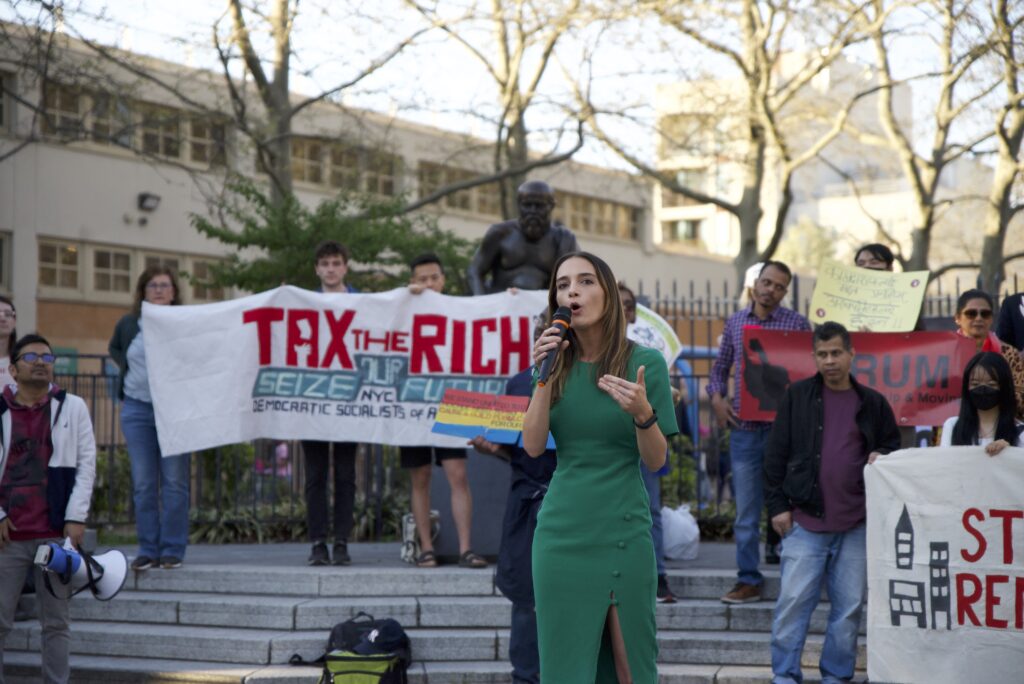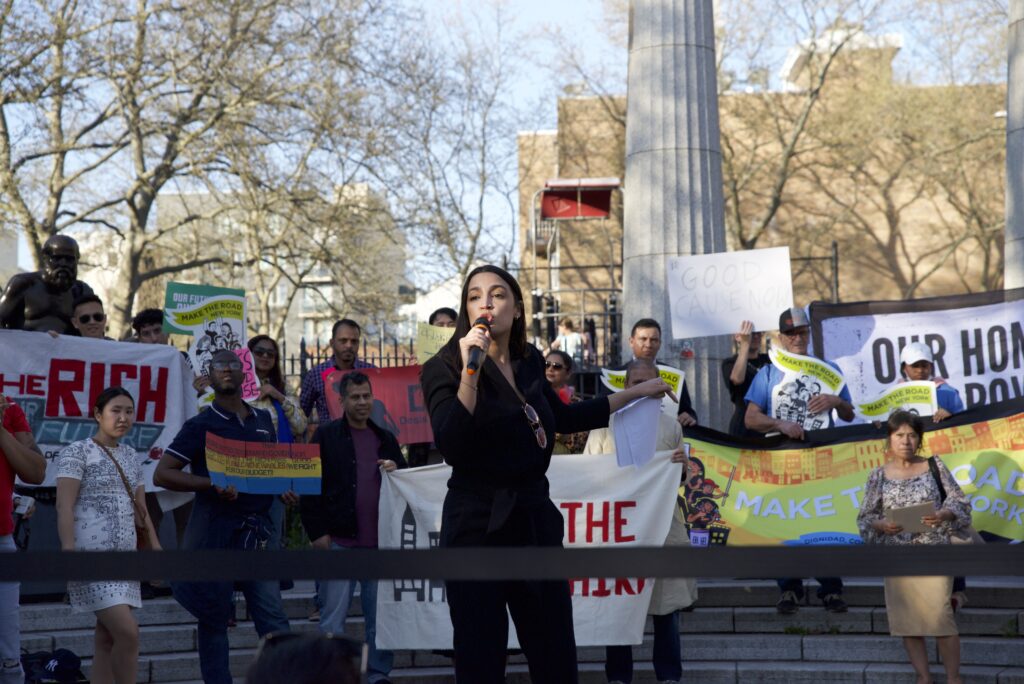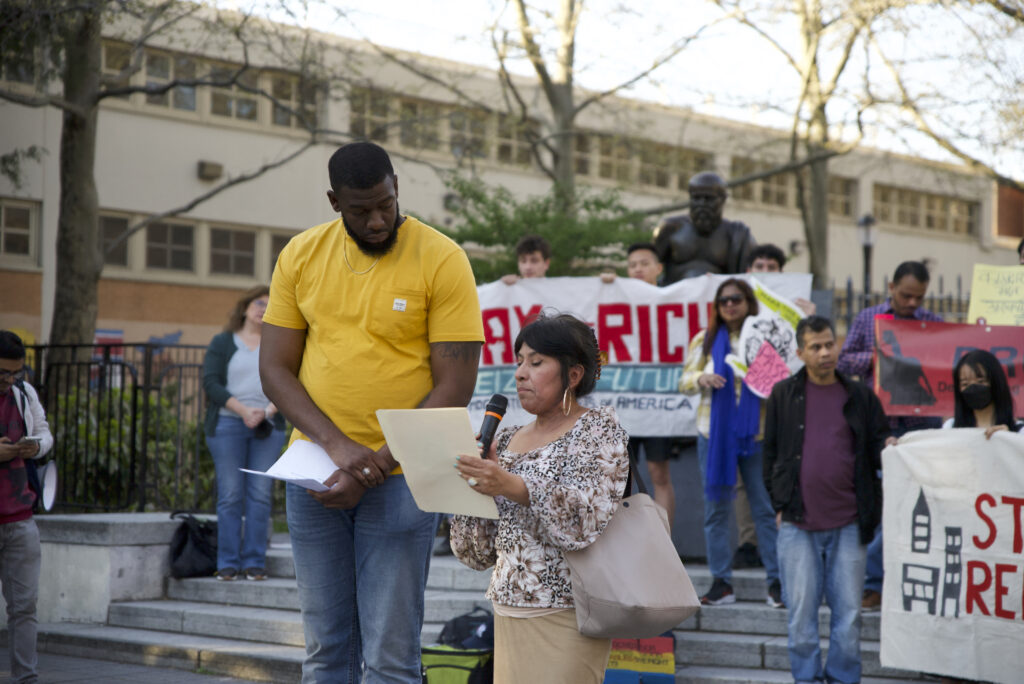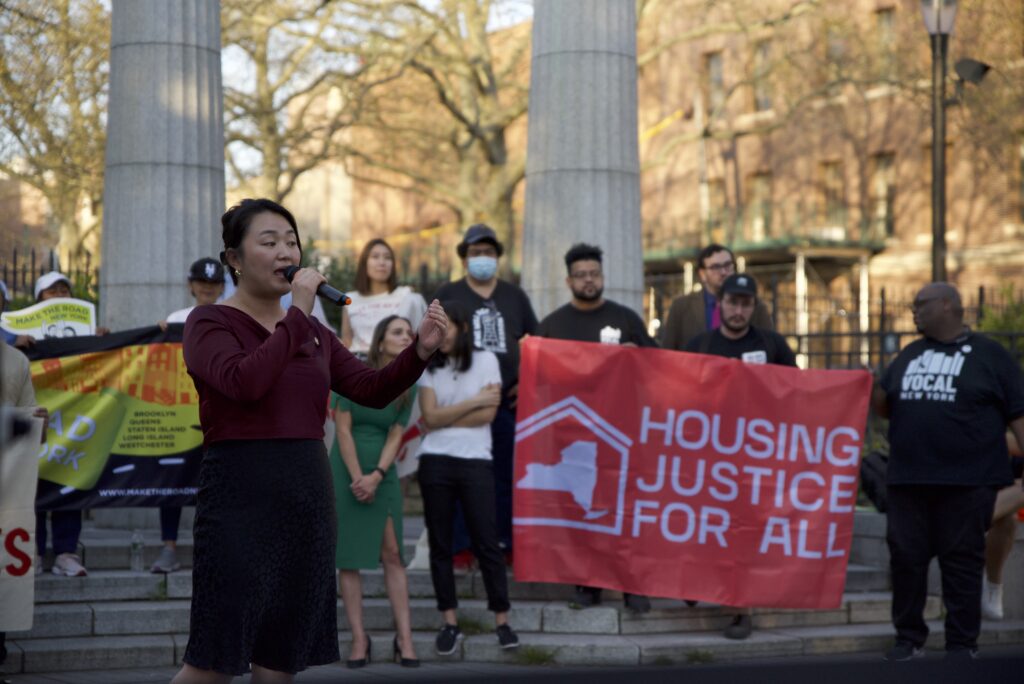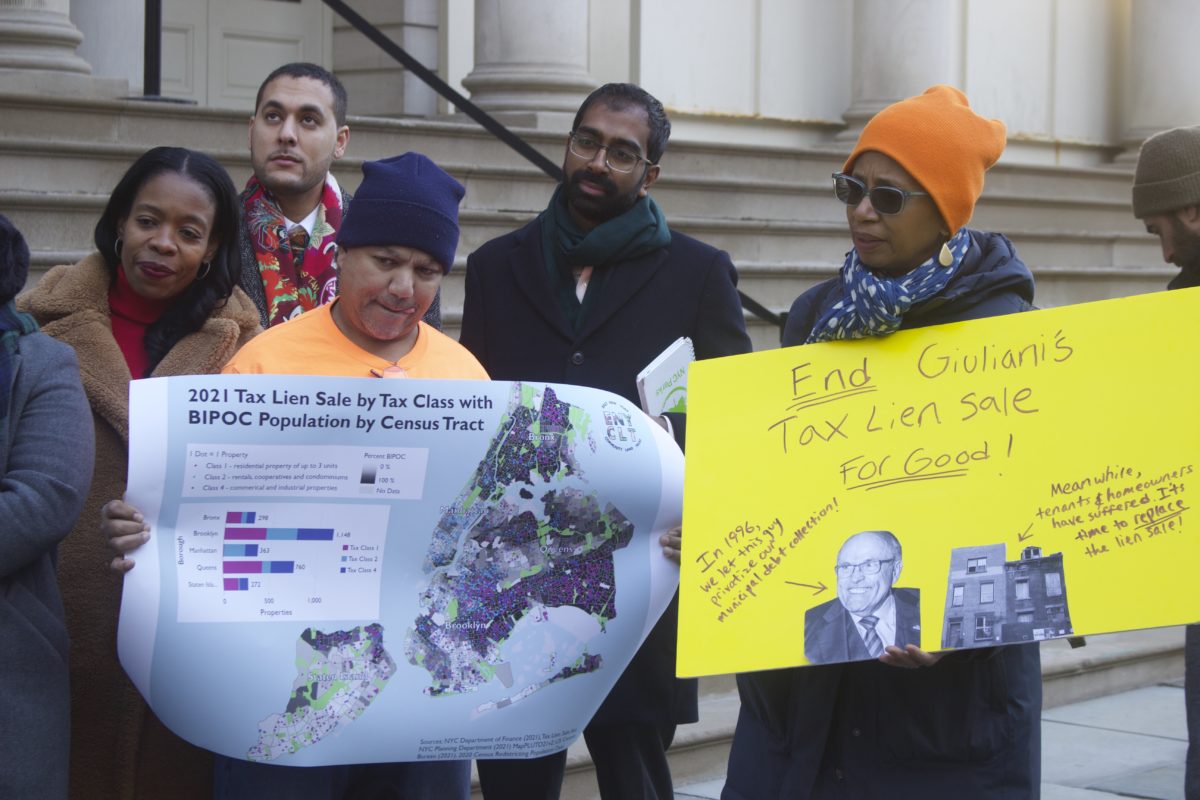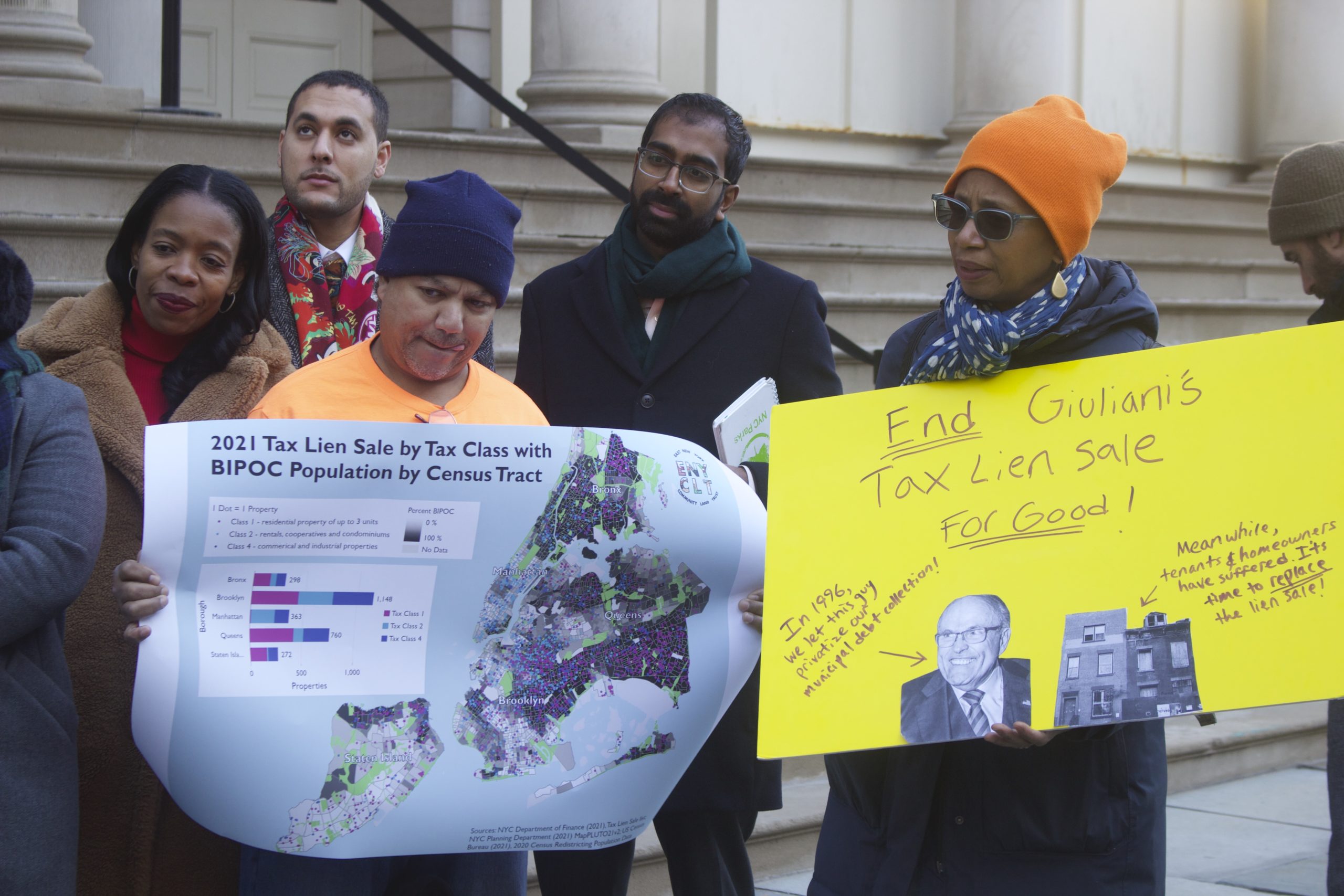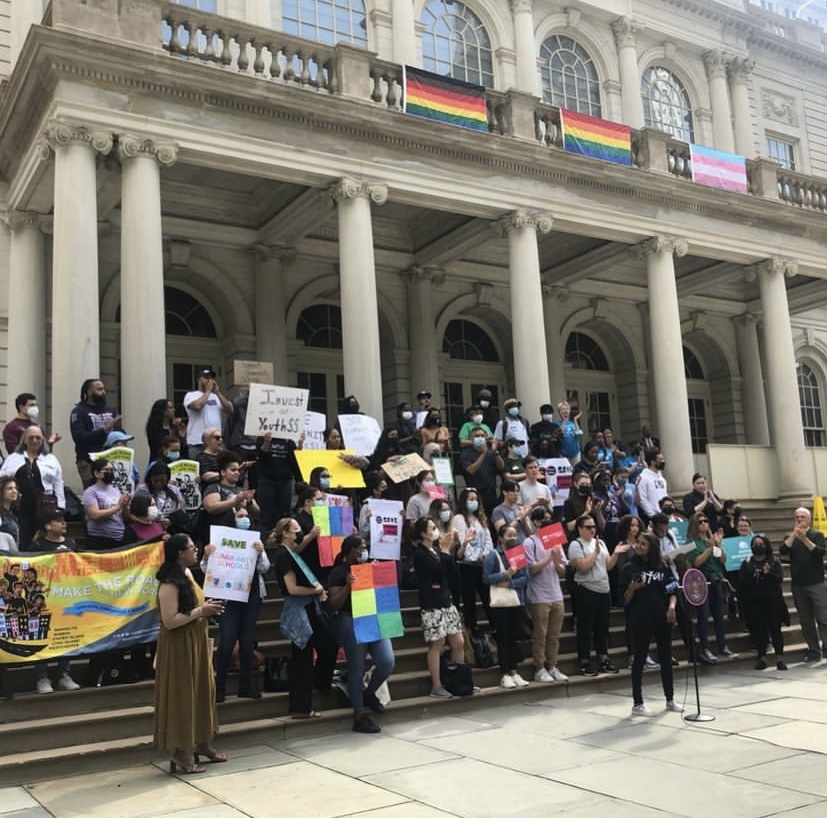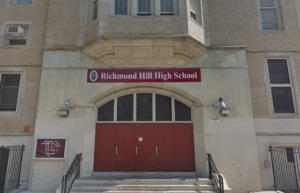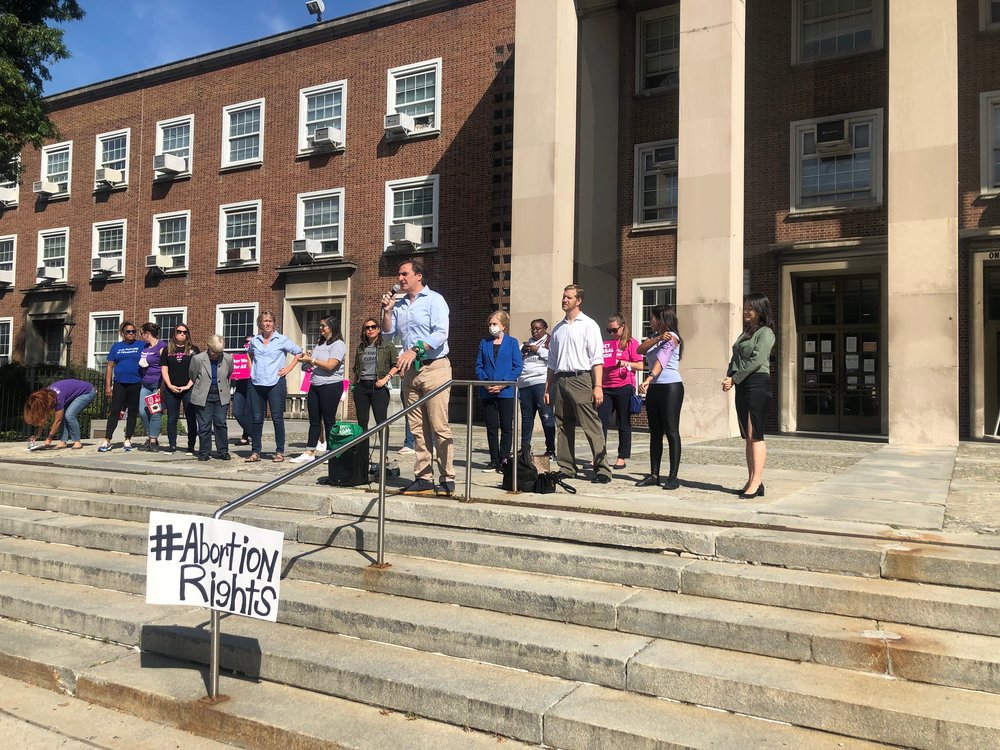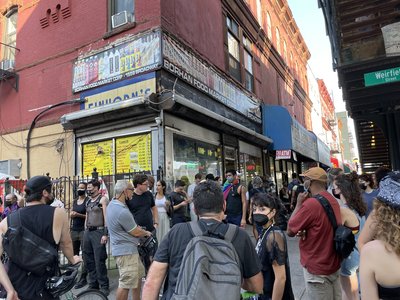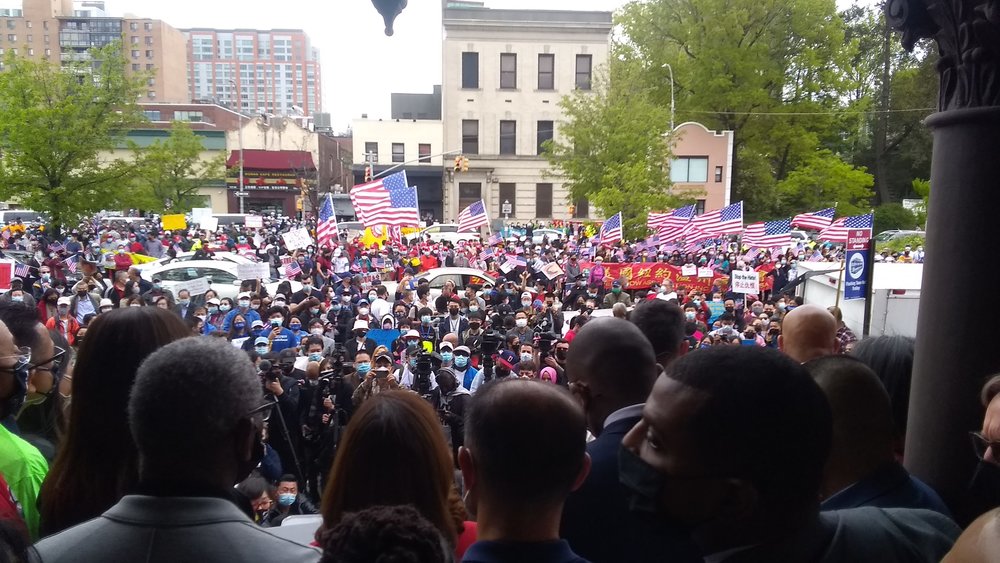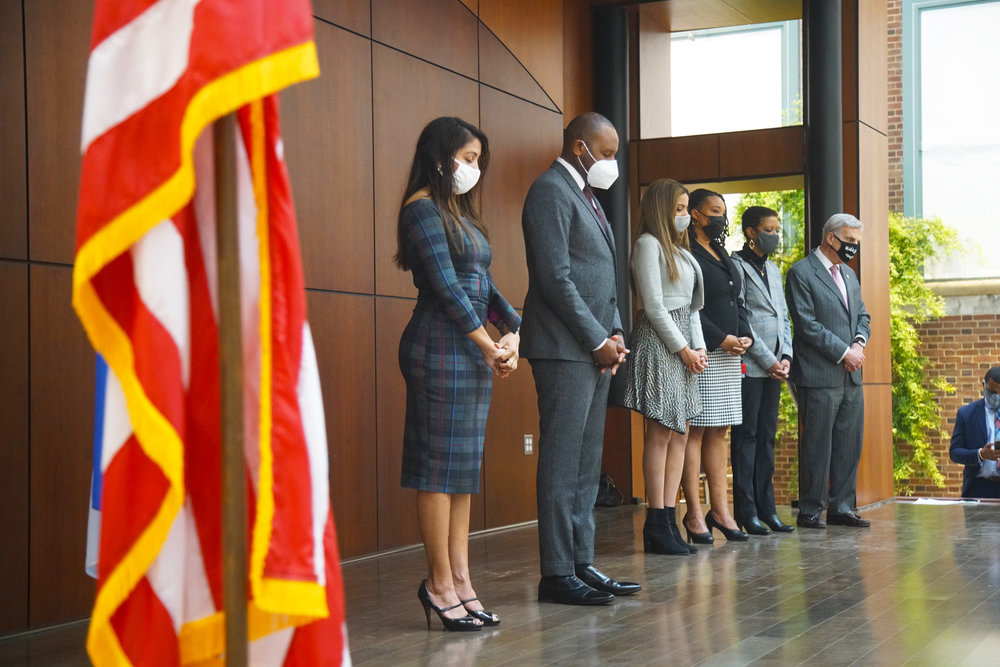Rain Didn’t Stop Sunnyside Pride
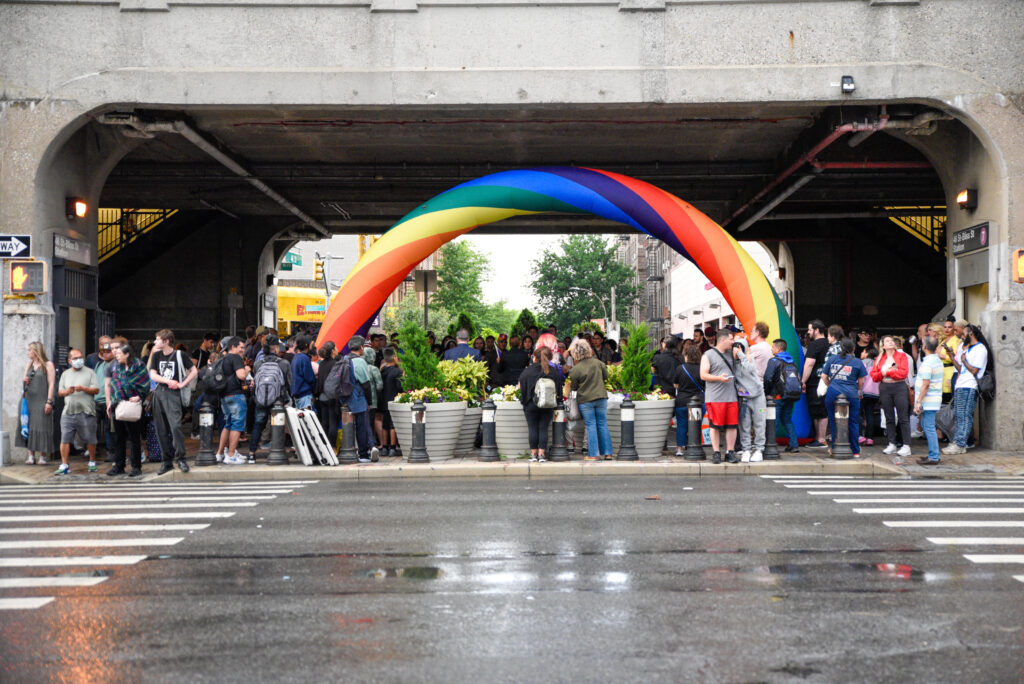
By Iryna Shkurhan | ishkurhan@queensledger.com
Rain and thunder didn’t stop Sunnyside from kicking off LGBT Pride Month with the second annual SunnyPride on June 2.
Beginning at Lowery Plaza, on Queens Blvd. and 40th St, at 6 p.m, elected officials and community advocates held a rally denouncing the attacks on the LGTBTQ+ community nationwide and locally. Council Member Julie Won, State Senator Michael Gianaris and Congresswoman Nydia Velázquez expressed solidarity with the community and said that they will continue to fight to secure equal rights.
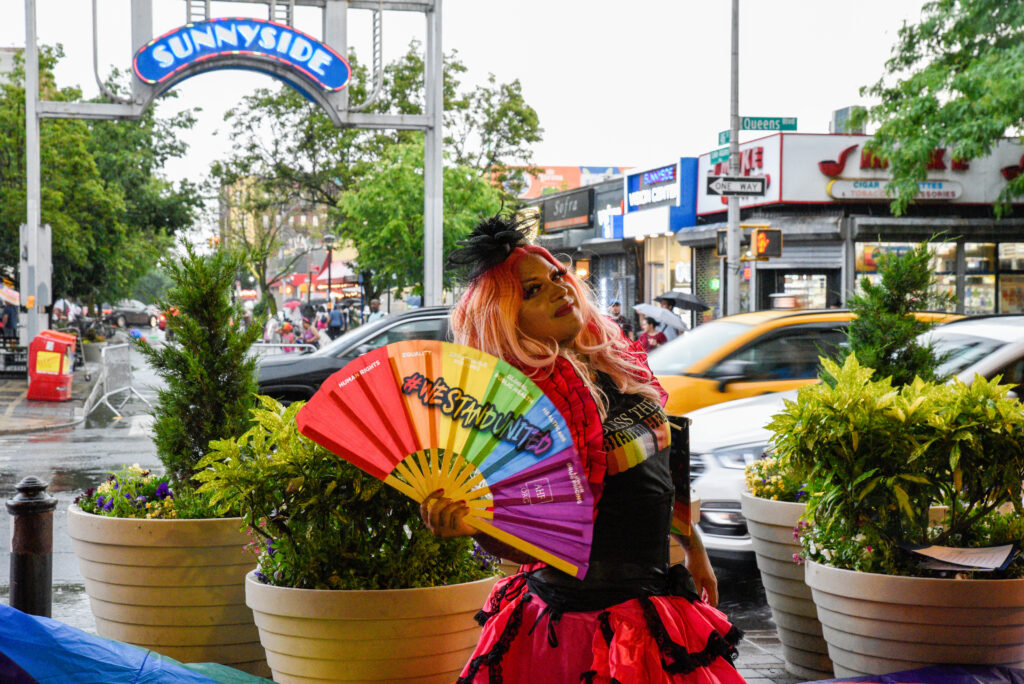
Over a hundred attendees proceeded to march underneath the 7 train to Bliss Plaza on 46th St. where a queer art market and performances awaited the crowd. A marching band led the parade to the next plaza, covered from the rain by the train above.
“I’m the community board chair, and I’m queer. And you’re the director of the Sunnyside BID and you’re queer. Why don’t we have a queer event?” recalled Morry Galonoy, the second Vice Chair of CB2, when he asked Dirk McCall, the executive director of Sunnyside Shines, to plan a pride event just three weeks out last year.
“We are not only celebrating, we are marching in protest of the folks that are trying to trample our rights. We cannot let that happen, we have to stand, be counted, be seen, be visible and take up space,” continued Galonoy during the rally.
Rain began to come down with some thunder and lightning as the rally began to transition into a march. But that did not stop the community from carrying on with the celebration with full energy.
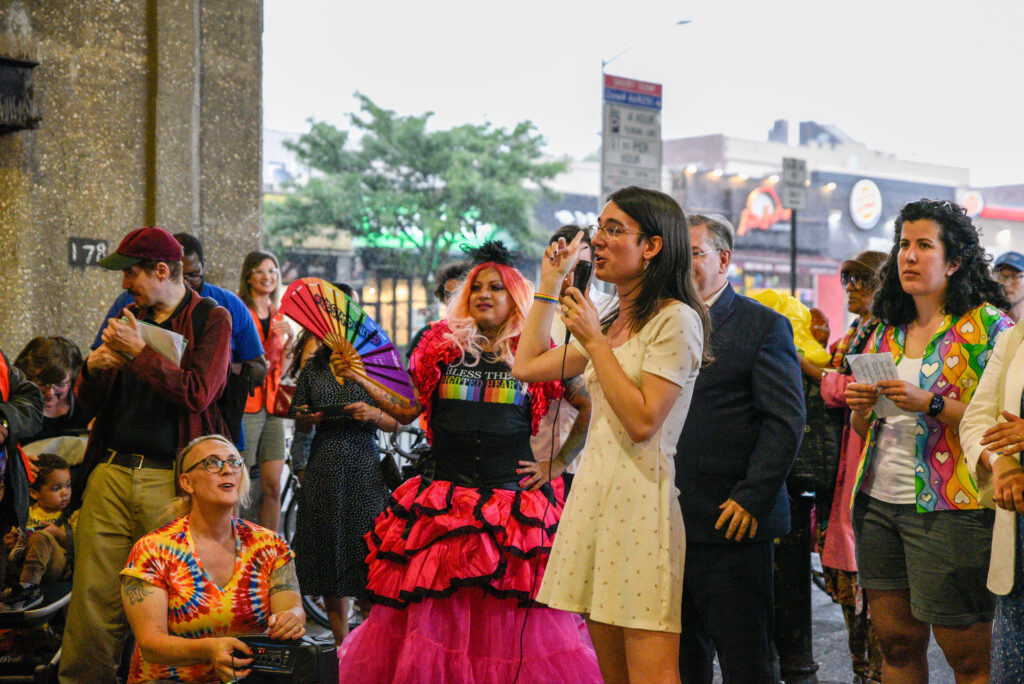
“I see a crowd where your faces are welcoming, where trans faces are welcome. Because you’re in this crowd,” said Émilia Decaudin, Democratic District Leader and youngest ever elected State Committee Member at the rally. “This is what Queens means.”
Decaudin is the first openly transgender party official in the state and staunch advocate of transgender rights.
At a Queer Makers Mart, various artists set up tables to display and sell their prints, custom mugs and tote bags. Initially, vendors set up their stands at the Sunnyside arch block, but they relocated to underneath the train at Bliss St. due to the rain.
One artist, Lili Rochelle, displayed watercolor prints in various sizes from her “Bodies” collection which seeks to embrace the female form. She says that her art is made through a queer lens for people of color.
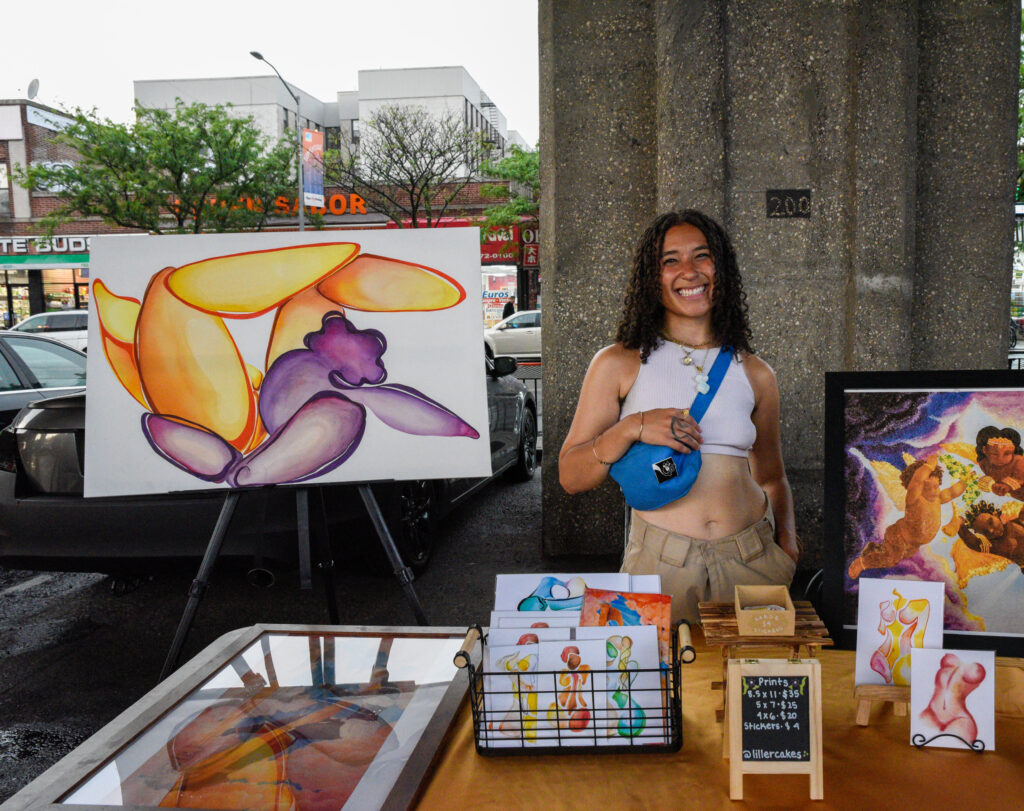
One of the main sponsors of the event was Romantic Depot, an adult sex toy and lingerie store with twelve locations across the tri-state area. Their Woodside location on 47th Street and Queens Blvd, is just a block from where the event was held. Store employees carried a banner during the march and gave out coupons and free gifts to the crowd.
Other sponsors included Elmhurst Hospital, Sunnyside Shines Business Improvement District, Public Health Solutions, Department of Cultural Affairs, Department of Transportation and Queens Community Board 2.
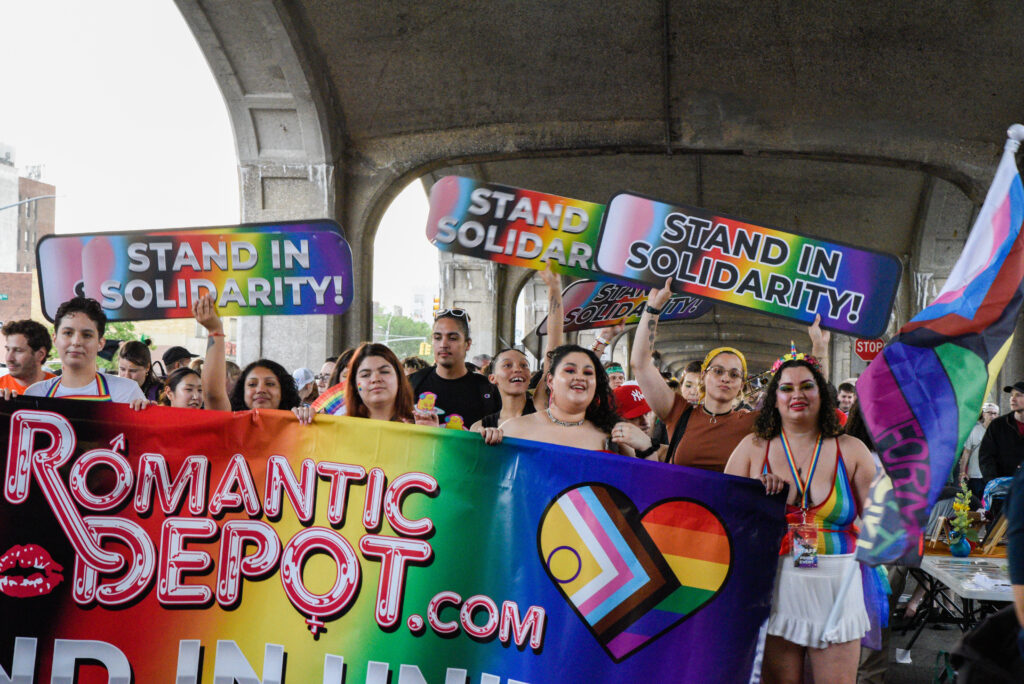
“They introduced more than 600 pieces of legislation across this country, against the LGBTQ community,” said Congresswoman Nydia Velázquez about her fellow members of congress. “And we cannot let that stand. So together, we will fight hate, we will come together to make our country a better country.”
The event culminated with several dance performances from drag queens and a story time reading from one of the performers to children in attendance. But the adults also tuned in attentively to the reading of the pride themed book.
A no cover after-party was held at Alewife Brewery, located at 41-11 39th Street, after 9 p.m. There, attendees were able to purchase “One Love Beer,” a hazy double IPA, with proceeds going to the Queens Center for Gay Seniors in Jackson Heights. Live music was played by singer-songwriter Janex followed by a performance from drag queen Angela Mansberry.



